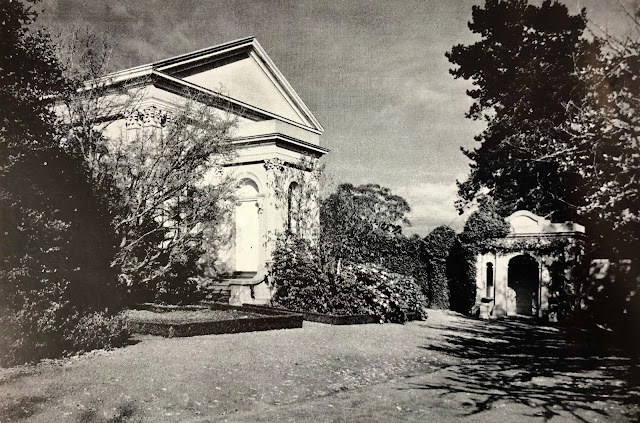No. 1144 - Campbell Town - St Luke's Sunday School (1845)
This entry is another in a series of articles about buildings associated with some of Tasmania’s most significant churches. These buildings include Sunday schools, parish halls, convents, schools and residences of the clergy. Ancillary buildings are often overlooked and are rarely featured in published histories. My aim is to create a basic record of some of the most significant of these buildings, including those which no longer exist.
Campbell Town is a sizeable rural centre on the Midland Highway approximately 70 kilometres south of Launceston. It was named by Governor Lachlan Macquarie when his party encamped here in 1821 on their way to Hobart. Macquarie chose the site as one of four garrison towns between Hobart and Launceston.
In 1835 colonial architect John Lee Archer drew up plans for an Anglican church. In the same year Governor George Arthur laid the foundation stone for St Luke’s. However, serious defects in the structure meant that it had to be rebuilt from the windows up which delayed the church’s opening until 1839.
In 1845 a Sunday school was built on the church grounds. The building was also used as a day school between 1851 and 1878 when a state school was opened in Bridge Street. The Sunday school building was designed Everard James Blackburn.
Dr William Valentine, the town doctor and a Lay Preacher at St Luke’s, was instrumental in the construction of St Luke's Sunday school. Valentine, along with his wife and daughter, were the first Sunday school teachers when the building opened in 1845.
Campbell Town is a sizeable rural centre on the Midland Highway approximately 70 kilometres south of Launceston. It was named by Governor Lachlan Macquarie when his party encamped here in 1821 on their way to Hobart. Macquarie chose the site as one of four garrison towns between Hobart and Launceston.
In 1835 colonial architect John Lee Archer drew up plans for an Anglican church. In the same year Governor George Arthur laid the foundation stone for St Luke’s. However, serious defects in the structure meant that it had to be rebuilt from the windows up which delayed the church’s opening until 1839.
In 1845 a Sunday school was built on the church grounds. The building was also used as a day school between 1851 and 1878 when a state school was opened in Bridge Street. The Sunday school building was designed Everard James Blackburn.
Dr William Valentine, the town doctor and a Lay Preacher at St Luke’s, was instrumental in the construction of St Luke's Sunday school. Valentine, along with his wife and daughter, were the first Sunday school teachers when the building opened in 1845.
The Herald of Tasmania, Friday 18 July 1845, page 2
Campbell Town Council and National Trust of Australia (Tasmania). Historical Committee. Campbell Town Tasmania: history and centenary of municipal government Campbell Town Municipal Council; 1966








Comments
Post a Comment